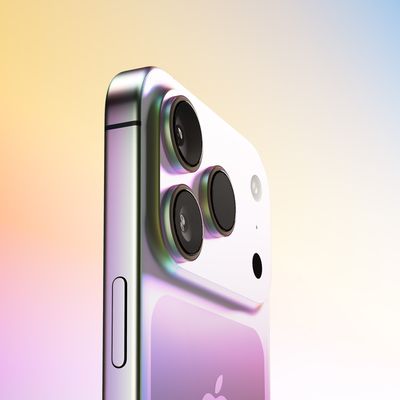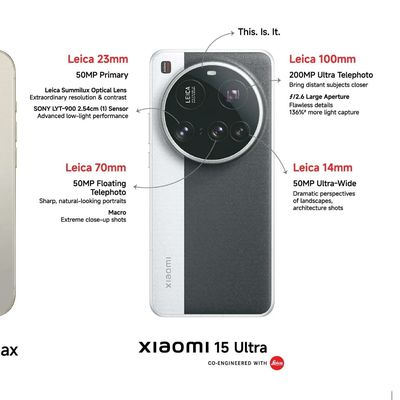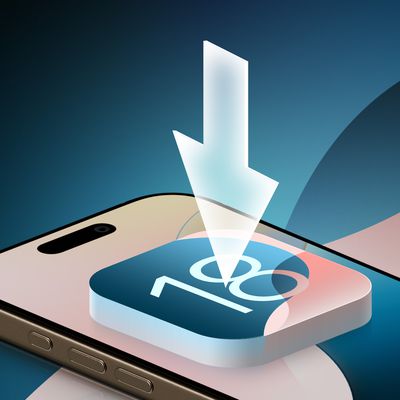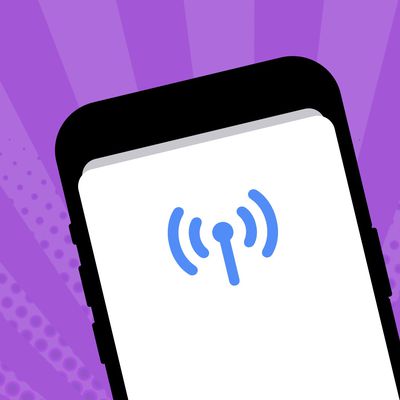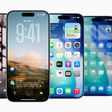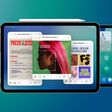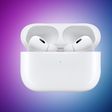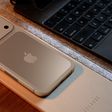Fitbit Announces Deal to Bring Glucose Monitoring Data to its Ionic Smartwatch
Fitbit has announced a new partnership with glucose monitoring device company Dexcom that is set to bring diabetes monitoring capabilities to the fitness tracker company's new Ionic smartwatch.
The deal initially means Ionic users will be able to connect a Dexcom device to the Fitbit app and seamlessly transfer up-to-date glucose level data to the smartwatch, making the information more easily accessible on their wrist.
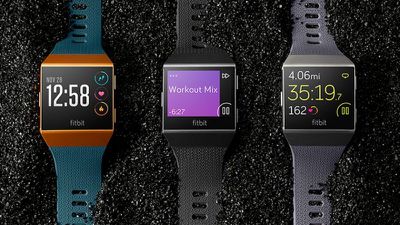
"The collaboration between Dexcom and Fitbit is an important step in providing useful information to people with diabetes that is both convenient and discreet," said Kevin Sayer, President and CEO, Dexcom. "We believe that providing Dexcom CGM data on Fitbit Ionic, and making that experience available to users of both Android and iOS devices, will have a positive impact on the way people manage their diabetes."
There's nothing in the partnership to suggest the Ionic smartwatch will be able to give continuous glucose monitoring readouts on its own when it's released next month – current continuous glucose monitoring systems require a small sensor that's worn under the skin to monitor glucose levels – but Fitbit shares jumped 13 percent on the news, a high for the company since January, when it laid off some of its employees and announced its smartwatch plans.
Dexcom also has a deal with Apple to bring its features to the Apple Watch this year, while owners of Dexcom monitors can already view their glucose data on an Apple Watch – advanced devices by Dexcom include a transmitter, which can display glucose information directly to an iPhone app.
Apple is thought to be working on a non-invasive real-time glucose monitor for a future version of Apple Watch. In April, a CNBC report suggested Apple had a team of biomedical engineers working to develop sensors for non-invasively monitoring blood glucose, with work on the sensors far enough along that the company had started conducting feasibility trials.
Apple CEO Tim Cook was reportedly spotted in May testing a prototype glucose monitor that's connected to his Apple Watch. Cook, who is said to be aiming to understand how his blood sugar is affected by food and exercise, has been seen wearing the device around the Apple Campus.
Popular Stories
Apple is expected to unveil the iPhone 17 series on Tuesday, September 9, and last-minute rumors about the devices continue to surface.
The latest info comes from a leaker known as Majin Bu, who has shared alleged images of Apple's Clear Case for the iPhone 17 Pro and Pro Max, or at least replicas.
Image Credit: @MajinBuOfficial
The images show three alleged changes compared to Apple's iP...
An iPhone 17 announcement is a dead cert for September 2025 – Apple has already sent out invites for an "Awe dropping" event on Tuesday, September 9 at the Apple Park campus in Cupertino, California. The timing follows Apple's trend of introducing new iPhone models annually in the fall.
At the event, Apple is expected to unveil its new-generation iPhone 17, an all-new ultra-thin iPhone 17...
Apple will launch its new iPhone 17 series this month, and the iPhone 17 Pro models are expected to get a new design for the rear casing and the camera area. But more significant changes to the lineup are not expected until next year, when the iPhone 18 models arrive.
If you're thinking of trading in your iPhone for this year's latest, consider the following features rumored to be coming to...
Apple and Samsung have reportedly issued cease-and-desist notices to Xiaomi in India for an ad campaign that directly compares the rivals' devices to Xiaomi's products. The two companies have threatened the Chinese vendor with legal action, calling the ads "disparaging."
Ads have appeared in local print media and on social media that take pot shots at the competitors' premium offerings. One...
Apple is preparing to release iOS 18.7 for compatible iPhone models, according to evidence of the update in the MacRumors visitor logs.
We expect iOS 18.7 to be released in September, alongside iOS 26. The update will likely include fixes for security vulnerabilities, but little else.
iOS 18.7 will be one of the final updates ever released for the iPhone XS, iPhone XS Max, and iPhone XR,...
Another hint has surfaced that Apple is preparing to eliminate the physical SIM card tray from iPhones in more countries this year.
In particular, a source familiar with the matter has informed MacRumors that retail employees at Apple Authorized Resellers in the EU are required to complete a training course related to iPhones with eSIM support by Friday, September 5. There are 27 countries...
![]()


